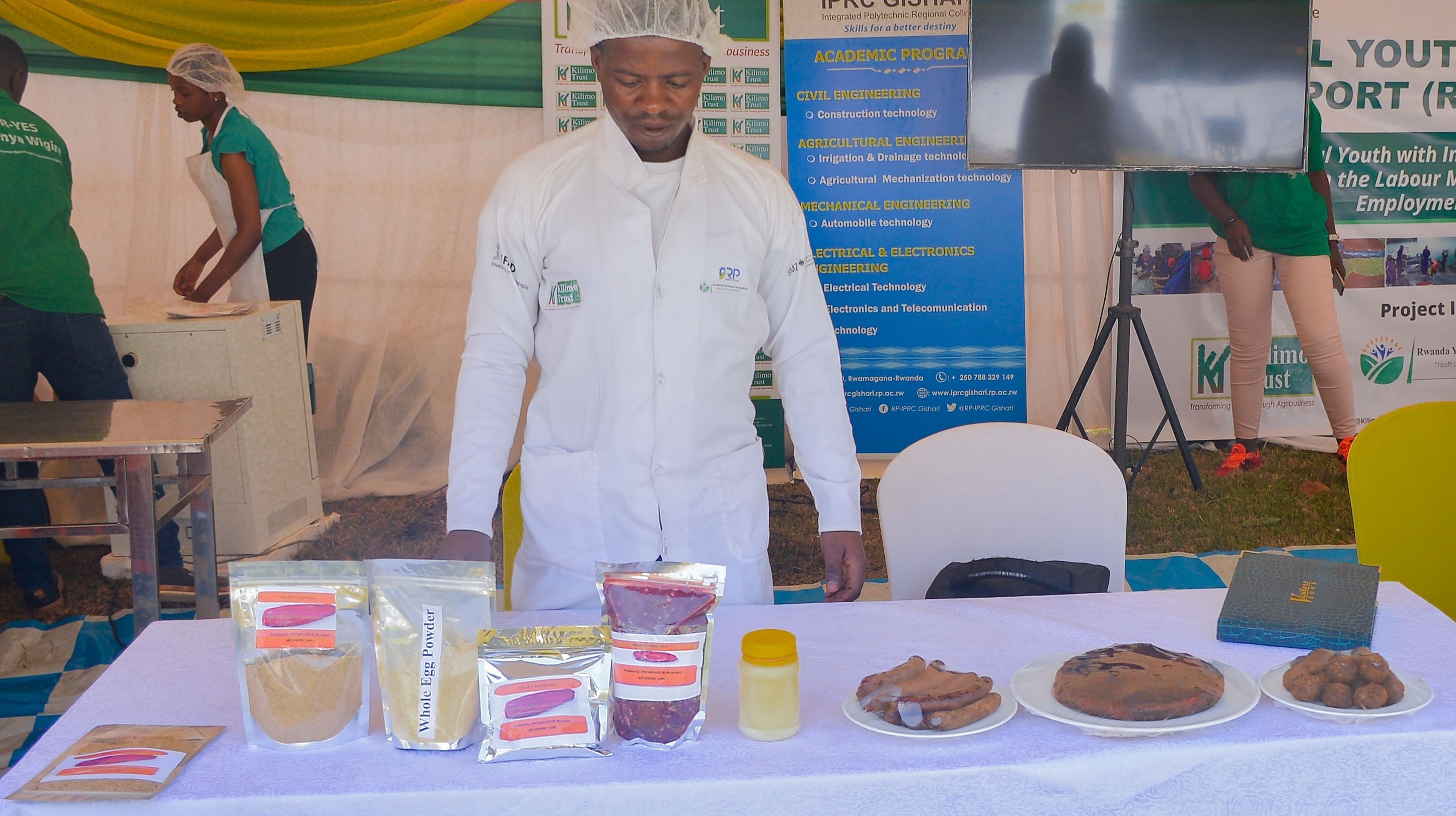Events
R-YES beneficiaries make meat and egg powder

Some of the products made by beneficiaries of R-YES project at a stand at the agricultural exhibition which took place at Mulindi expo grounds in Kigali. / Photos: Courtesy.

